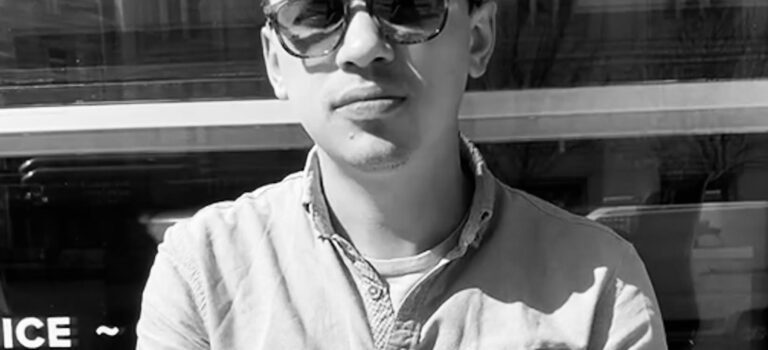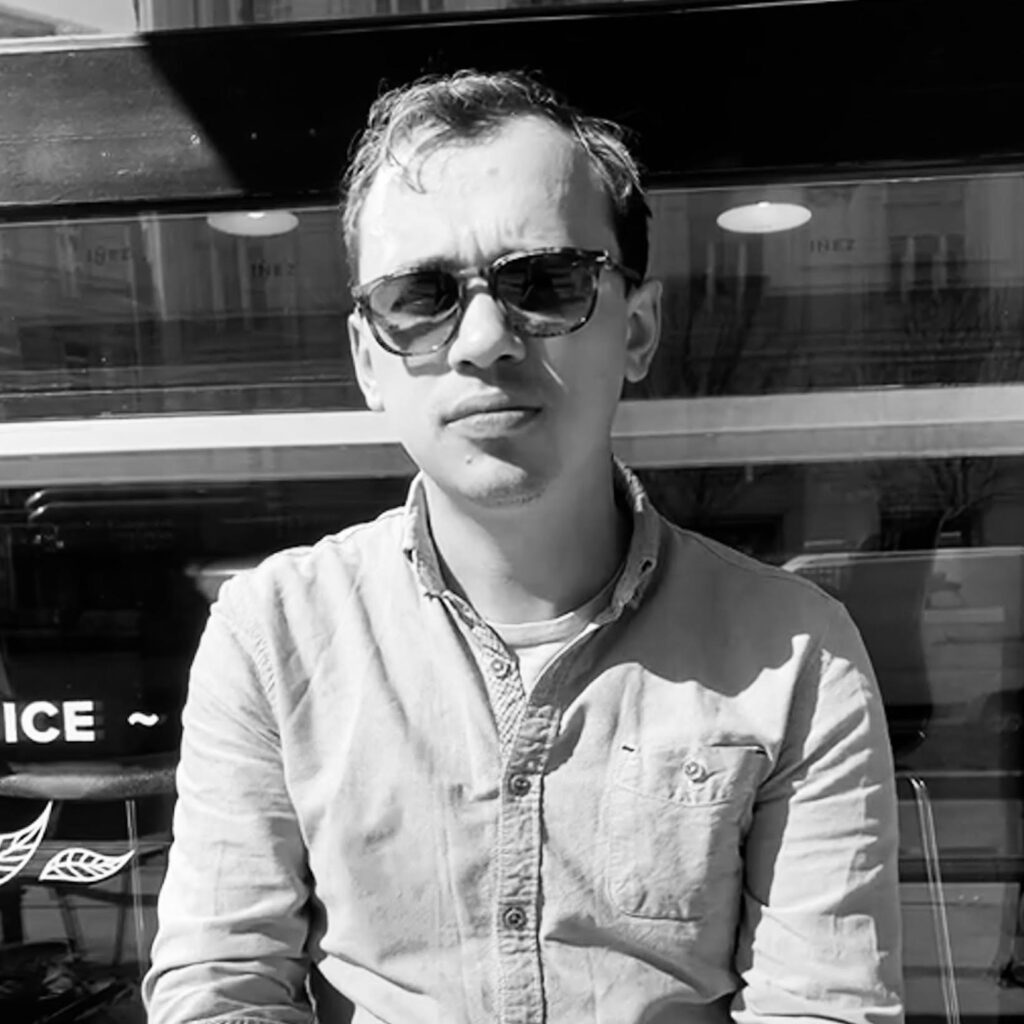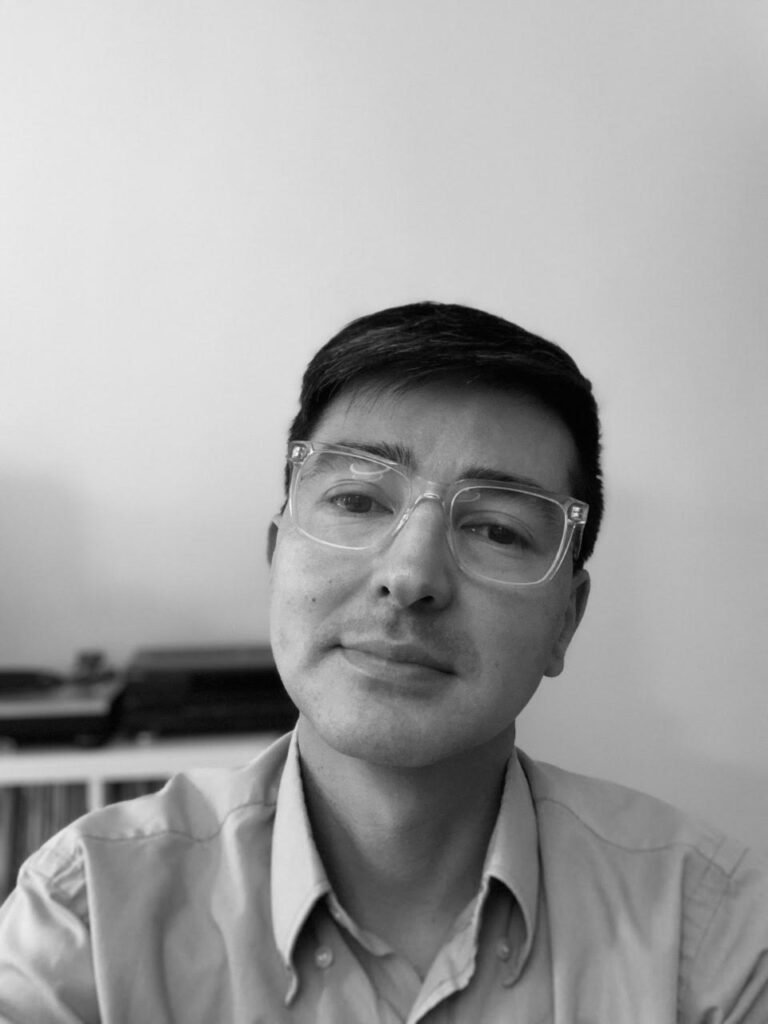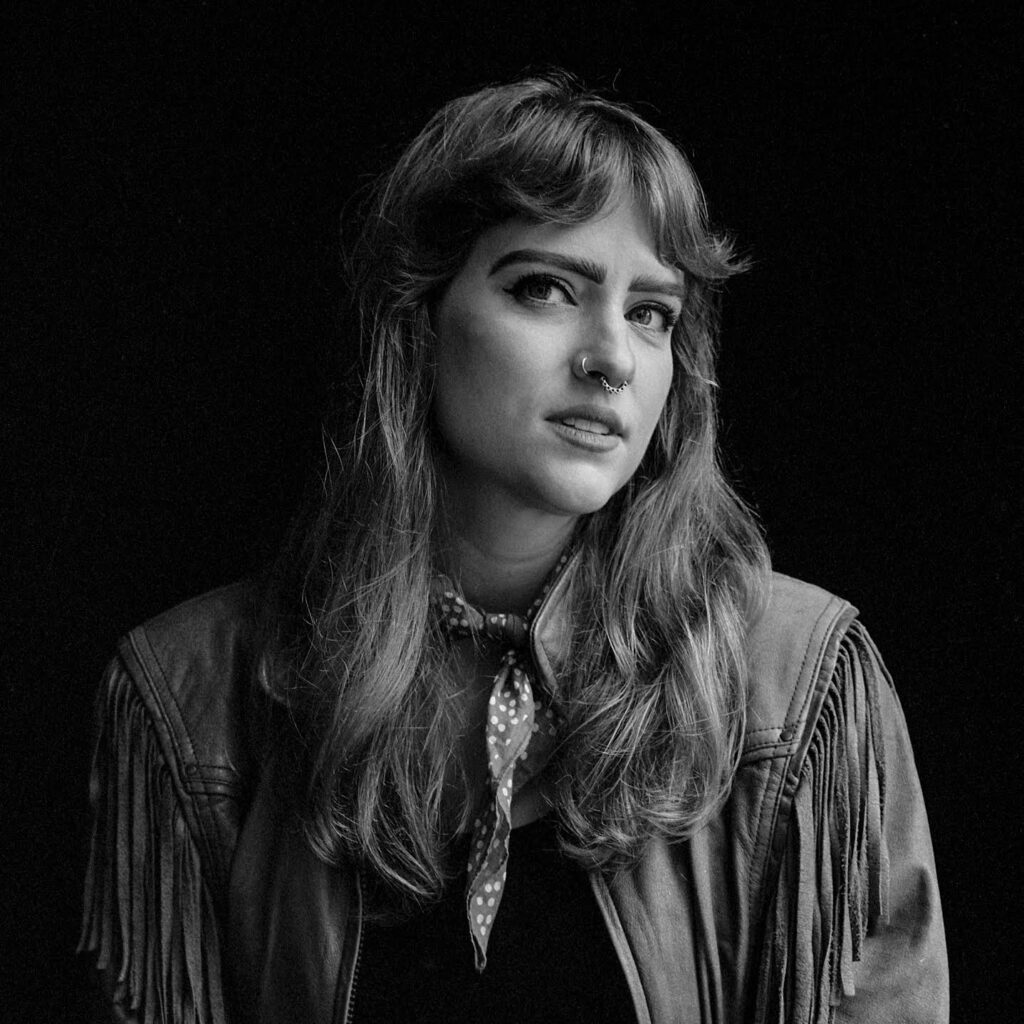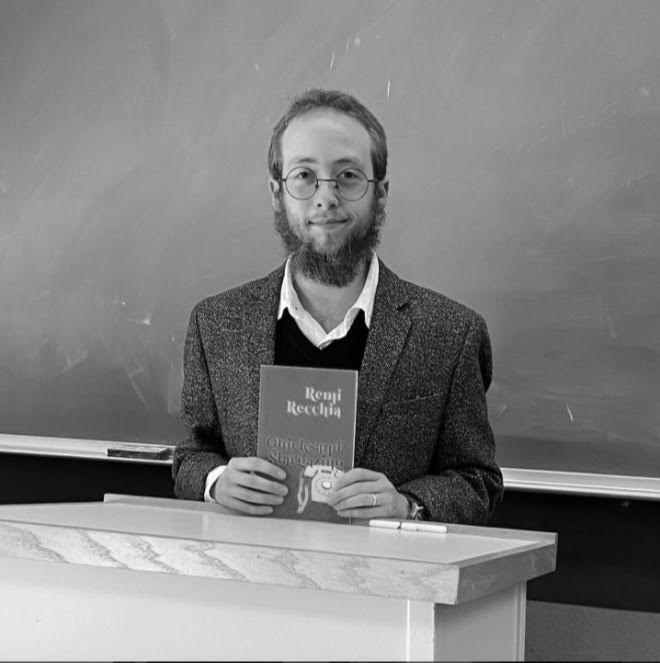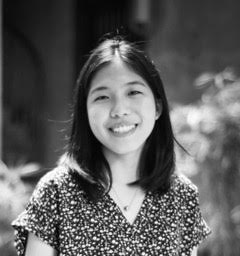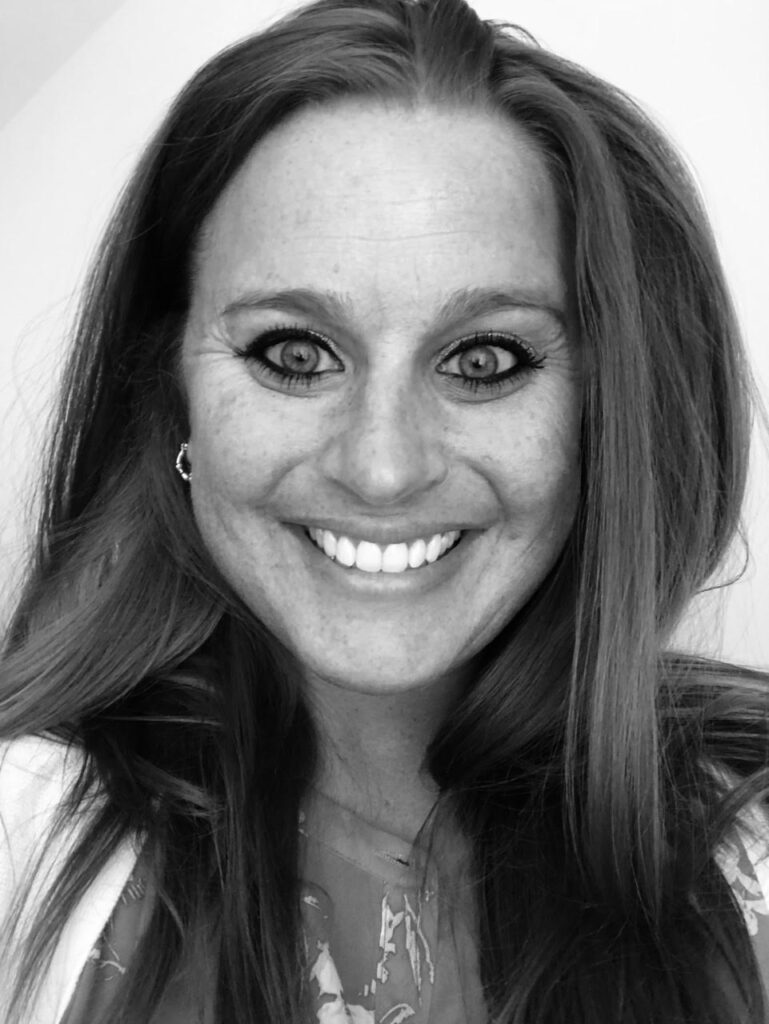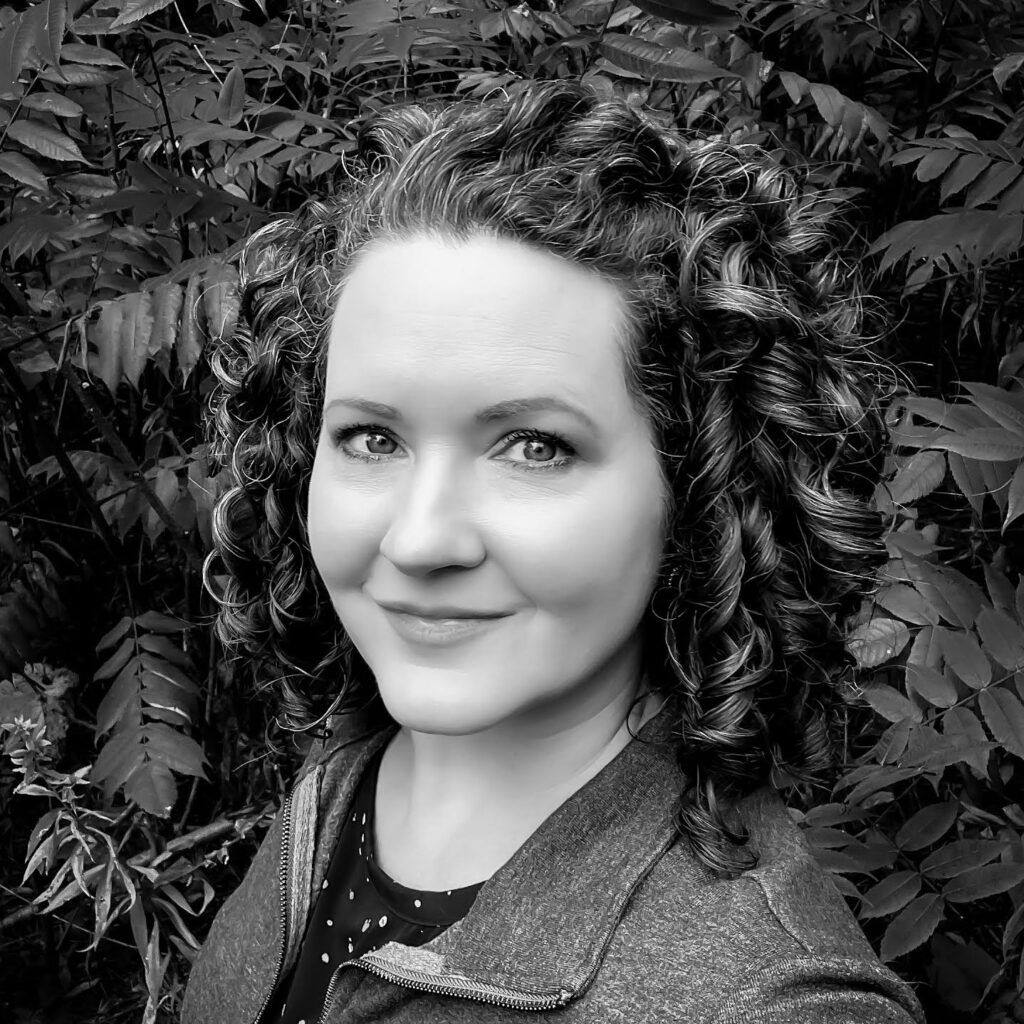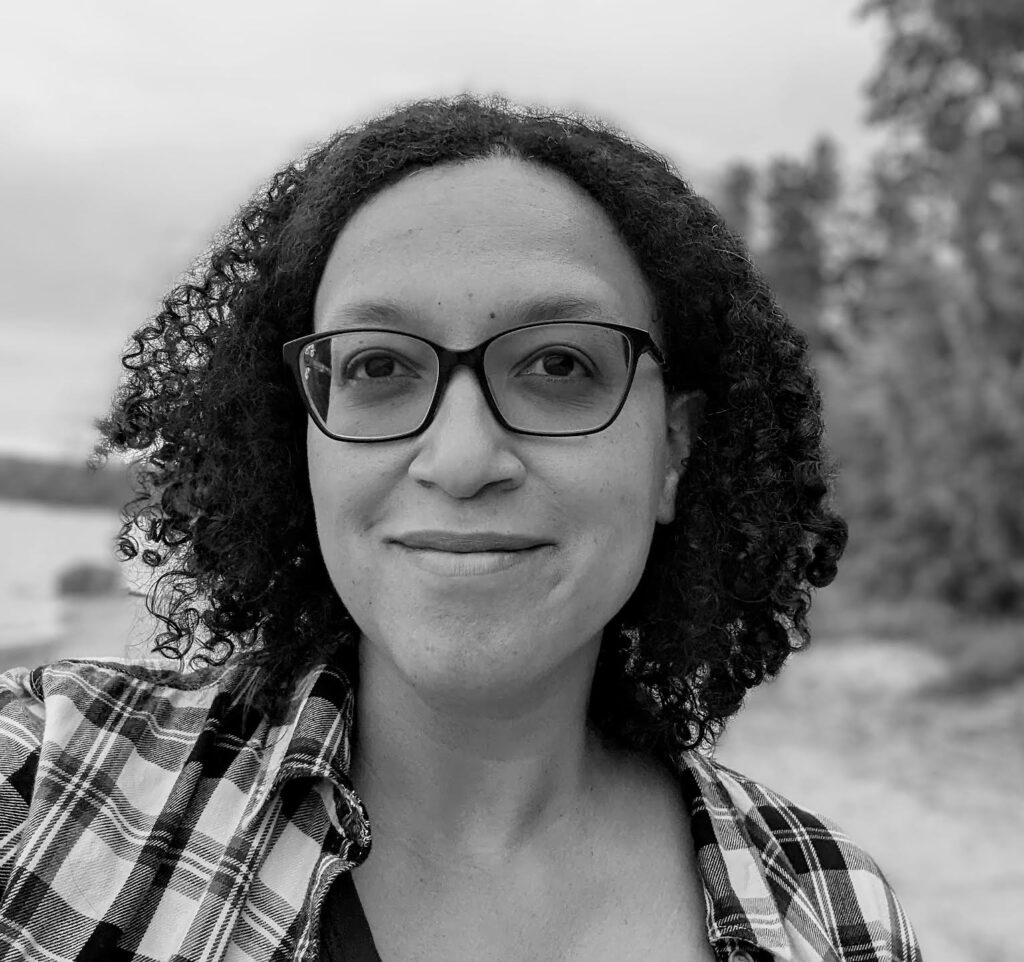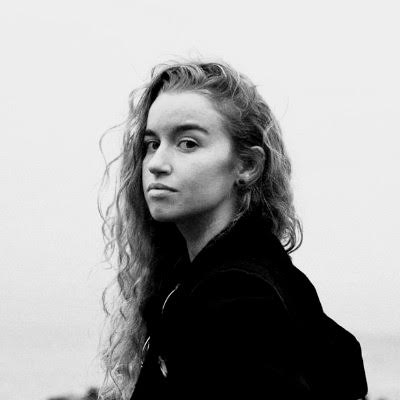
Joanne Diaz is the author of two poetry collections, The Lessons and My Favorite Tyrants. She is the recipient of fellowships from the Illinois Arts Council and the National Endowment for the Arts. Her recent poems have been published in American Poetry Review, Colorado Review, New England Review, Poetry, River Styx, and Waxwing. She is the Isaac Funk Endowed Professor of English at Illinois Wesleyan University. She is also the co-host of the Poetry for All podcast.
Her poem “Facts in Review” appeared in Issue 30 of Superstition Review, accompanied by one of Jason Reblando’s photos. We are pleased to present an interview with Joanne Diaz below, conducted by Madison Latham, one of Superstition Review’s poetry editors for Issue 30.
Madison Latham: What was the process like for creating the mixed media?
Joanne Diaz: I created the collage that accompanies this poem during a residency at the Virginia Center for Creative Arts (VCCA). I am by no means a visual artist, and I hadn’t made a collage since I was in elementary school, but I knew that I wanted to try this, just to see where it would take the work. The black-and-white image is from a film that documented the Berlin book burnings of 1933. I had known about that image for years, and it haunted me—the way the face of the Nazi youth is facing away from the viewer, and toward the flames—and I used a simple color blocking technique to emphasize the shape of his body and he hurls the books into the fire. For a long time, I was feeling stuck with this poem, but when school boards all over the United States started banning books, I knew that I had something to say.
This collage is one of a few in the collaborative project that I’ve been working on with Jason Reblando. The majority of the word-image pairings in this collection are comprised of my poems and Jason’s photographs.
ML: How did you decide what sources to use for the poem “Facts in Review”? What makes a reliable source? What is your advice for poets that want to include facts in their own poetry?
JD: Well, the title of the poem is actually a lie. As I say in the note to the poem, Facts in Review is the title of a Nazi propaganda magazine that was sent to American subscribers between 1939-1941. I first learned about this magazine when I read Mark Monmonier’s amazing book How to Lie with Maps, which provides an analysis of how maps never tell the whole truth, and how often nations and empires use maps for propagandistic purposes. Monmonier included some examples of Nazi maps in his book, and when I saw his citation of the magazine, I read through every issue, just to see what was published there. I noticed something right away: the magazine was full of lies about Nazi aggression—lies that made the Nazi regime seem benign, even beneficent. So many times in my life, I’ve wondered what it must have been like to live in Europe during the rise of fascism in the 1930s. Reading Facts in Review helped me answer that question. It also helped me understand the rise of fascism in our own nation right now.
ML: How would you describe your experience working with one another on collaborative media? What did you learn from the collaboration?
JD: In brief: Jason’s photos came first, and my poems came second. For Jason to create the photos, he had to walk La Ruta Walter Benjamin, a difficult mountain pass that begins in Banyuls sur Mer in the south of France and ends in Portbou, Spain. For millennia, the Pyrenees have been the site of many kinds of crossings, but there are two kinds of crossings that interest us most: the trek that writer Walter Benjamin took from France to Spain in 1940 when he was escaping the Nazis who were set on persecuting him; and the walk that 500,000 Spaniards took from Spain to France in 1939 in order to escape persecution in Franco’s fascist regime.
As Jason walked the route, he took photos that not only attended to the natural landscape, but to the history and culture of the land as well. As I meditated on his photographs, I conducted research—on the Spanish Civil War, on the Nazi regime, on Walter Benjamin—and wrote poems that helped me to understand the terror of that time. Jason is often my best editor, and he provided a lot of important feedback on the poems.
When we share excerpts of this work in art galleries, we print the poems on vellum and position the photographs underneath the vellum. That way, a viewer can read the poem, then lift the vellum to see the photo that inspired it. This palimpsest effect allows the reader to think about the layers of history and language embedded in every landscape.
ML: We see that you both teach at universities in Illinois. How do you know each other? And what is the story behind the collaborative media? Have you done collaborative work before, and would you do something like it again?
JD: We’re married! Jason is a photography professor at Illinois State, and I’m an English professor at Illinois Wesleyan, just a mile down the street. We’ve never collaborated on a project before, but we’ve really enjoyed this experience and would happily do it again.
ML: What are each of you working on next?
JD: In recent months, we’ve completed work on La Ruta and are looking for a publisher. Meanwhile, Jason is creating a series of new collage pieces that draw upon archival photographs of the Philippines from the turn of the last century. You can see some of his amazing work here.
